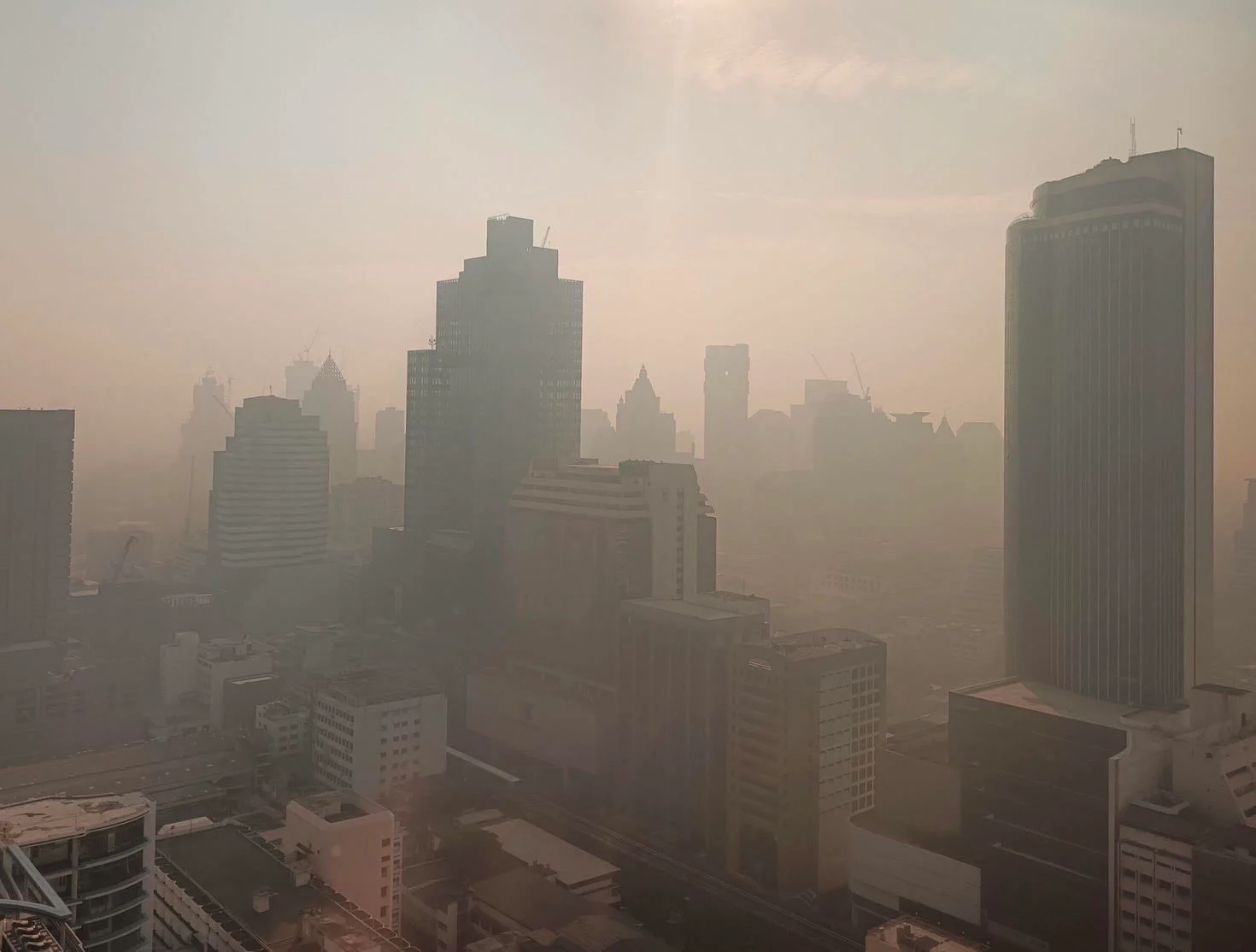Alarming rise in Thailand’s air pollution prompts call for dedicated committee

Air pollution in Thailand has escalated to an alarming level, prompting the Thailand Development Research Institute (TDRI) to call for the formation of a dedicated national committee to tackle the PM2.5 problem and a separate agency to manage smog. These proposals were presented in an academic paper published on the TDRI’s website yesterday.
This comprehensive study was conducted by esteemed TDRI fellow, Nipon Poapongsakorn, and contemporary agricultural policy researchers, Sutthipat Ratchakom and Kamphol Pantakua. They focused on the hazardous fine particulate matter smaller than 2.5 microns, commonly referred to as PM2.5.
The paper recommends the establishment of a committee with the authority to focus exclusively on the PM2.5 issue, complete with sufficient funding for its operation. They also propose the launch of a sandbox-type management system in the northern region and a reformation of pollution control laws.
“Creating a big data system to share information about hotspots and air pollution in Thailand and neighbouring countries is essential,” Nipon stated in the research paper. The paper also stressed the importance of sufficient budget allocation for local authorities tasked with managing the issue and the necessity of close collaboration with neighbouring countries to reduce hotspots.
Nipon and his team identified four primary factors contributing to the pollution problems in the capital: temperature inversion leading to stale air, carbon emissions from traffic congestion, electricity generated by fossil fuels, and factory density.
The team further noted that even with the government’s policy to encourage power generation from renewable sources like solar and biomass, renewables only make up a meagre 18% of the total energy produced.
The TDRI researchers found that emissions from approximately 3.28 million diesel engine vehicles, representing 27.37% of the vehicles in the capital, and the high number of factories in the areas neighbouring Bangkok are exacerbating the air pollution issue.
Meanwhile, in the northeastern region, the primary cause of deteriorating air quality was found to be farmland burning. Approximately 580,000 rai have been repeatedly burned for over a decade, contributing significantly to the country’s air pollution problem, reported Bangkok Post.
The research team also identified agricultural burning on farms in neighbouring countries as another contributing factor to Thailand’s worsening air pollution. This issue presents a considerable challenge as it requires cross-border cooperation to effectively mitigate.
Latest Thailand News
Follow The Thaiger on Google News:


























